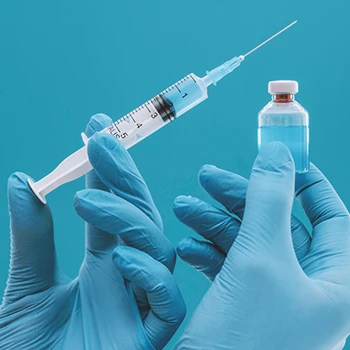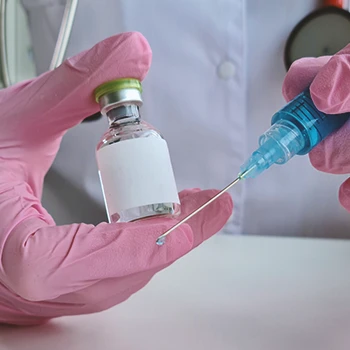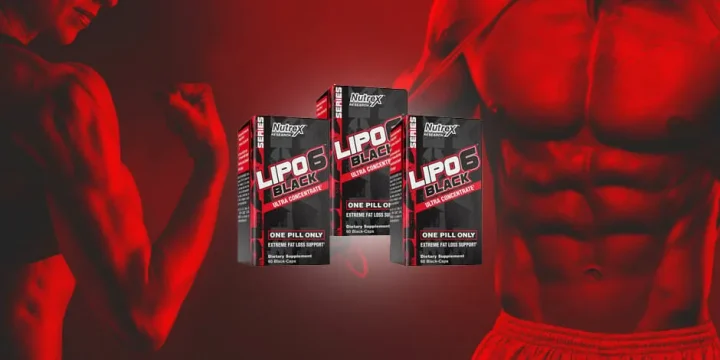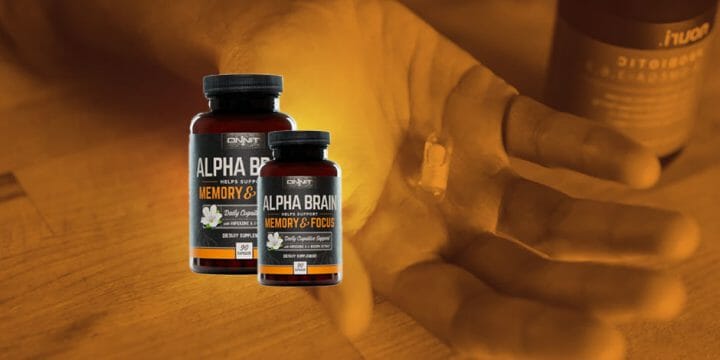Testosterone cypionate is a form of hormone replacement therapy that can lead to unwanted changes in your body.
As a fitness medical doctor, I've seen its misuse, prompting me to research and consult doctor colleagues about its side effects.
In this article, I will provide everything you need about this medication.
Keep on reading.
Quick Summary
- Testosterone cypionate may cause several side effects, such as skin issues like acne, localized swelling at the site of injection, development of gynecomastia, an altered frequency of erections, a reduction in sperm count, experience of headaches, and shifts in mood.
- Males with hypogonadism do not produce enough of the reproductive hormone testosterone and may experience male pattern baldness.
- In 2011, approximately 2.3% of men in their 40s and 3.8% of men in their 60s in the USA were undergoing testosterone replacement therapy for conditions like hypogonadism.
- Personally, I believe the decision to use testosterone cypionate requires a balance of benefits and risks, underscoring the need for medical guidance.
What Are the Side Effects of Using Testosterone Cypionate?

The side effects of using testosterone cypionate include acne, swelling at the injection site, gynecomastia, increased frequency of erections, decreased sperm count, headaches, and mood changes [1].
Minor side effects should go away in a few days or weeks; however, you should consult your physician or pharmacist if they become more intense or do not go away. Serious side effects, on the other hand, require immediate reaction.
According to the National Library of Medicine, these are some of the symptoms that may occur:
- Stroke – The signs of stroke include slurred speech, muscle pain, and weakness in one area or side of the body [2].
- Prostate cancer – Before and throughout therapy with this medicine, your doctor must examine for prostate cancer or other prostate disorders, especially if you are 65 or older.
- Heart attack – The symptoms of a heart attack may include chest pain, breathlessness, increased blood pressure, and upper-body soreness [3].
- Prostate gland enlargement – The symptoms of prostate gland enlargement may include urgent or frequent urination, difficulty initiating urination, a weak urine discharge, straining when urinating, and the inability to empty your bladder [4].
- Embolism of the lungs – The symptoms of a blood clot in your lungs are breathlessness, chest pain or distress that worsens when you breathe in deeply or cough, lightheadedness, dizziness or fainting, quick pulse, and blood in your cough [5].
- Liver disease – Among the symptoms of liver complications are nausea, throwing up, rapid weight gain, upper stomach pain, swelling of the legs and ankles, bruising more quickly than usual, pale stool, dark urine, and yellowing of the skin or whites of the eyes [6].
- Polycythemia – Signs of the rise in your red blood cell count include facial reddening, migraines, confusion, infarction, blood clots, chest pain, fatigue, and reduced mental sharpness [7].
- Deep vein thrombosis – Blood clots in the veins of your limb may cause swelling and soreness in your legs [8].
- Insomnia – Difficulty falling or staying asleep, leading to fatigue and irritability.
- Anxiety and Depression – Symptoms may include persistent feelings of sadness, worry, and loss of interest in activities.
- Changes in Cholesterol Levels – This may include increased LDL (bad cholesterol) and decreased HDL (good cholesterol).
Some individuals may encounter side effects other than the ones listed. If you experience any concerning symptoms while taking this medicine, consult your physician.
"In the United States, testosterone treatment is becoming increasingly popular. Before considering long-term testosterone treatment, clinicians should ensure that the patient is aware of the benefits and risks."
- Stacy Sampson, Doctor of Osteopathic Medicine
What Is Testosterone Cypionate?

According to the National Library of Medicine, testosterone cypionate is a prescribed injectable drug known as Depo-Testosterone [9].
It can be administered at home after instruction from a doctor. It's also available as a generic medication, often less expensive than the brand name.
It is also offered as a generic medication, often less expensive than brand-name prescriptions. However, it might not be as accessible in the same dosages or formulations as the brand-name medicine.
What Is Testosterone Cypionate Injection Used For?
Testosterone cypionate injection is used to help restore testosterone to normal levels. Cypionate is very beneficial in treating low T in men [10]. Low testosterone occurs when the body's natural testosterone synthesis is insufficient.
The National Library explains that men with low testosterone often experience distressing symptoms due to its importance for health and well-being [11].
Among these symptoms are:
- A lack of sexual desire (low libido)
- Difficulty concentrating
- Sexual dysfunction (impotence)
- Muscular atrophy and shrinking testes
- Infertility
- Body fat accumulation
- Male pattern baldness
- General exhaustion
- Breast tissue growth (gynecomastia)
- Mood disorders
Other Precautions When Taking Cypionate

Before using cypionate, it is important to understand the precautions that come with the medication.
This product comes with several warnings:
- Allergic reaction – Cypionate has the potential to induce severe allergic reactions. Symptoms include difficulty breathing and swelling of the throat or tongue [12].
If you have any of these symptoms, visit the nearest emergency facility. - Kidney disease – People with renal disease or impaired kidney function are more likely to have fluid build-up (edema) [13].
If you suffer from kidney disease, call your doctor and ask about how this drug could influence your health condition, how your medical problem might affect the administration and efficacy of this drug, and if you require any additional monitoring. - Sleep disorders – Therapy with testosterone may result in sleep apnea (interrupted breathing while sleeping), particularly in persons with risk factors like obesity or chronic lung diseases [14].
- Breastfeeding – This drug is not meant for women and can be especially harmful when taken during nursing.
- Male breast cancer – If you are a male with breast cancer, you should not use this medication.
This drug may worsen your symptoms, like chest pain, and worsen your sickness. - Liver function – Liver illness or impaired liver function might cause this medicine to accumulate in the body [15].
If you have liver issues, talk to your physician about how this medicine may affect your overall health. - Sperm count – If used at large dosages or for an extended length of time, this medicine may reduce sperm count [16].
In addition, this medication may induce water and salt retention if you have a heart condition. This may lead to serious aggravation of the already present symptoms.
"Whereas testosterone cypionate injections are a good choice for large numbers of men each year who struggle with the adverse effects of low testosterone, there are some people, such as children, pregnant women, and seniors, for whom cypionate treatments are not recommended."
- George Touliatos, Biopathologist
Who Should Not Take Testosterone Cypionate?

If your hematocrit's over 54%, steer clear of testosterone cypionate. It can hike up cholesterol, especially if yours is already out of whack. High cholesterol? Watch out for heart and blood vessel troubles.
That’s why, while using this drug, your doctor will monitor your cholesterol levels. In addition, people who have diabetes should not use this medication as it may cause a severe drop in their blood glucose levels.
Finally, individuals with blood clots should avoid this product as it may raise the risk of forming blood clots in the lungs or deep veins in the legs.
Does Testosterone Cypionate Have Benefits?
Yes, testosterone cypionate has benefits as it supplements your body with testosterone that the system cannot produce on its own [17]. It is an androgen type of medication aimed at treating hypogonadism in men.
Some of the benefits of cypionate include:
- Increased libido
- Better erectile function
- Boosted vitality and energy
- Muscle growth and fat loss
- Increased cognition
Cypionate is a highly effective and well-tolerated form of hormone replacement therapy.
It's also worth noting that cypionate is a schedule-III-restricted drug in the United States, which means that it can't be used legally without prescriptions and the supervision of a licensed physician specialized in treating Low T.
If you want to enhance your performance and build muscle, I recommend using only the best T boosters below:
Related: Does Testosterone Cypionate Build Muscle?
How to Use Testosterone Cypionate

Typical cypionate dosage for adult males is 200 mg biweekly, maxing at 400 mg monthly. A doctor injects it into your buttocks.
Dosage varies with body mass, health conditions, and other meds. Always follow your doctor's prescribed dose. Did you miss a dose? Call your doctor immediately to reschedule.
Store cypionate at room temperature, away from moisture and light, and out of children's reach. Consult your pharmacist about safe methods for disposal of unused or expired meds.
Testosterone Cypionate Drug Interactions

Combining cypionate with certain drugs, like insulin and oral diabetic medications (nateglinide, metformin, pioglitazone, glimepiride, repaglinide, glipizide, rosiglitazone, sitagliptin, exenatide, saxagliptin, liraglutide, linagliptin [18]), can significantly lower blood sugar levels.
Your doctor might reduce your diabetic medication accordingly. Regularly check your glucose levels when taking these together.
Also, cypionate mixed with oral blood thinners, such as warfarin, increases bleeding risks [19]. Your doctor will closely monitor this combination.
The National Library of Medicine also explains that cypionate with adrenocorticotropic hormones and corticosteroids heightens the risk of edema (fluid build-up) [20].
FAQs
What Happens if You Take Too Much Testosterone Cypionate?
If you take too much testosterone cypionate, you will suffer side effects such as liver and heart disease, stroke, mental problems, and improper bone growth (especially in adolescence).
How Does Taking Testosterone Make You Feel?
Taking testosterone makes you feel more energized. Moreover, you will experience increased libido, vitality, and a sharper memory.
How Long Does It Take for a Cypionate to Kick In?
It takes cypionate about 24 hours to kick in, and the effect remains for three to five days after administration.
How Much Cypionate Should I Take a Week?
You should take approximately 200 gg/cc of cypionate a week.
References:
- https://pubchem.ncbi.nlm.nih.gov/compound/Testosterone-cypionatehttps://www.ncbi.nlm.nih.gov/books/NBK279214/
- https://www.ncbi.nlm.nih.gov/pmc/articles/PMC4000924/
- https://www.ncbi.nlm.nih.gov/pmc/articles/PMC5509197/
- https://www.ncbi.nlm.nih.gov/books/NBK560551/
- https://www.ncbi.nlm.nih.gov/pmc/articles/PMC2271178/
- https://pubmed.ncbi.nlm.nih.gov/30252337/
- https://pubmed.ncbi.nlm.nih.gov/29399531/
- https://www.ncbi.nlm.nih.gov/pmc/articles/PMC3261473/
- https://www.ncbi.nlm.nih.gov/pmc/articles/
- PMC5182226/https://pubmed.ncbi.nlm.nih.gov/337982/
- https://www.ncbi.nlm.nih.gov/pmc/articles/PMC6966696/
- https://www.ncbi.nlm.nih.gov/pmc/articles/PMC7203829/
- https://www.ncbi.nlm.nih.gov/pmc/articles/PMC6305865/
- https://www.ncbi.nlm.nih.gov/pmc/articles/PMC3160634/
- https://www.ncbi.nlm.nih.gov/pmc/articles/PMC6305868/
- https://www.ncbi.nlm.nih.gov/pmc/articles/PMC6305868/
- https://www.sciencedirect.com/topics/chemistry/testosterone-cypionate
- https://www.ncbi.nlm.nih.gov/books/NBK279141/
- https://www.drugs.com/drug-interactions/testosterone-with-warfarin-2167-0-2311-0.html
- https://www.ncbi.nlm.nih.gov/books/NBK531462/
About The Author
You May Also Like






